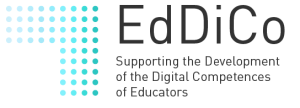ASSESSMENT TOOLS FOR LEARNING – WHY USE DIGITAL TOOLS TO ASSESS?
The educator can learn about a variety of assessment tools to take a classroom to the next level so that students are learning by themselves or with another.
The educator can learn about a variety of assessment tools to take a classroom to the next level so that students are learning by themselves or with another.
The user will get to know the overview of HolonIQ’s comprehensive analysis of the micro-credentials market globally, including definition and segmentation of the micro-credentials market, the emerging infrastructure to support micro-credential ecosystems, and analysis of the likely future role of micro-credentials in the post-secondary landscape.
The user will learn to consider how a digitally capable organisation can support and enhance learning and student experience at each stage of the lifecycle, from Demand and Discovery through to Work and Lifelong Learning.
The educator can learn about a variety of video and assessment tools to take a classroom to the next level so that students are learning by themselves or with another.
(1) To understand the role of classroom-level assessment in competence based education, aligning assessment practices with key competence development and meaningful classroom-level assessment practices.
(2) To reflect on lessons for policy and practice.
Training material focus on teacher and trainer competence development to apply digital badges in open learning to plan recognition and credentialization of open learning processes in formal learning and by employer organizations. Training material include theoretical references and presentations, as well as practical task for trainees. It will be based on concrete skill and competence definition and practical tasks will be based on group work and trainee collaboration in order to foster teacher and trainer open collaboration approach and matching open learning with formal learning and employer organizations requirements and settings.
Using an evaluative, predictive model, the instructors and support staff—including instructional designers and courseware developers—are eble to evaluate technologies for their appropriate fit to a course’s learning outcomes and classroom contexts.
The training material puts focus on theoretical references from current research, but also includes practical tasks for learners to elaborate individual approaches to be used in their working contexts. It gives insight to the contemporary state of art in this field and good practice examples of successful integration of open learning offers into formal curricula, as well as to existing recognition procedures already applied in Europe. Further it includes guidelines and checklists that shall support open learning providers in designing their offers so they meet the requirements for formal recognition of open learning offers and for negotiating them towards key stakeholders.
Training material focus on teacher and trainer competence development to design open learning curriculum using digital online learning resources and to plan open learning processes and their recognition in formal learning and by employer organizations. Training material include theoretical references and presentations, as well as practical task for trainees. It based on concrete skill and competence definition and practical tasks are based on group work and trainee collaboration in order to foster teacher and trainer open collaboration approach and matching open learning with formal learning and employer organizations requirements and settings.
Supporting the Development and Certification of the Digital Competences of Educators – EdDiCo
Project Ref: 2019-1-DE01-KA203-005070
This project has been funded with support from the European Commission. This website reflects the views only of the authors, and the Commission cannot be held responsible for any use which may be made of the information contained therein.

